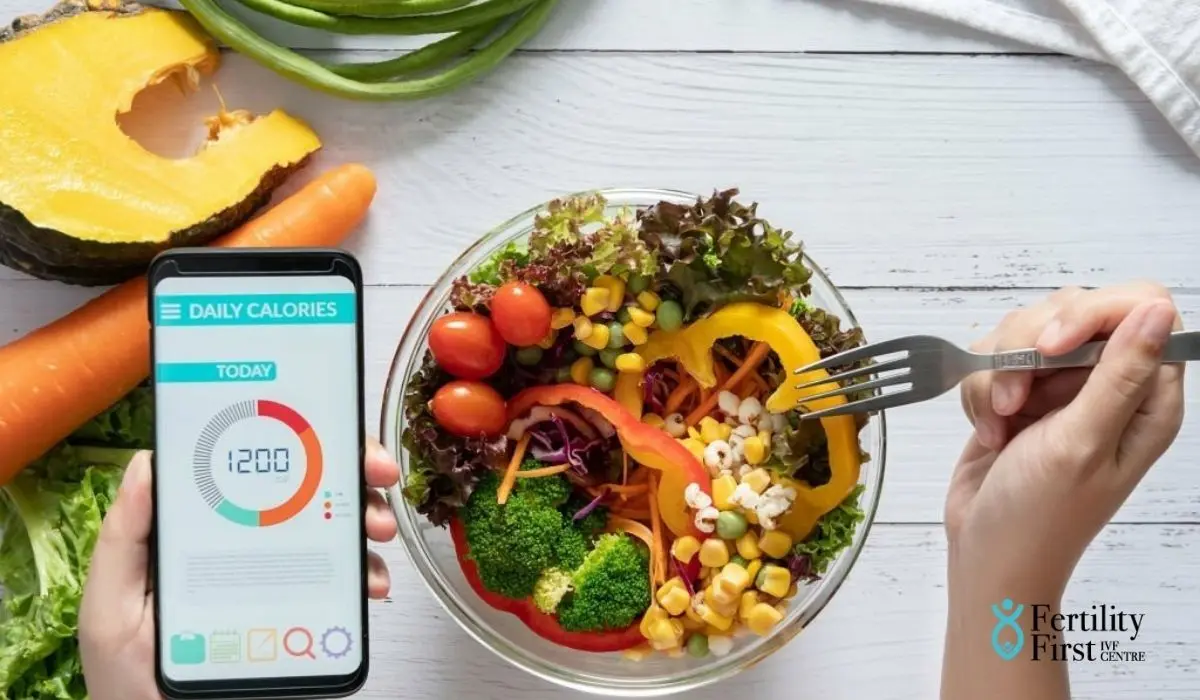The Healthy Diet to Improve Fertility: The Ultimate Guide to a Healthy Diet

Fertility! The miracle of life. The ability to create and nurture the next generation is a profound aspect of human existence. When you look at the complex fertility tapestry, one overlooked aspect is diet. It is the silent partner and most influential element of fertility. A healthy body results from incredibly healthy choices about what and what not to eat. A healthy diet is a wonderful investment. If you cherish the dream of having a baby, keep your reproductive health in good condition. Even though many factors can influence your fertility, the role of a healthy diet in improving fertility is undeniable.
In this article, we embark on a journey through the world of nutrition and reproduction. The intersection of fertility and food is fascinating. Let’s find the answer to the question, what role does diet play in improving fertility?
Harnessing The Power of a Healthy Diet to Shape Your Reproductive Destiny
What you consume will determine the destiny of your conception. Pregnancy is a captivating journey that starts when nutrition and the reproductive system work together to create a welcoming environment for a new life. The ability to conceive and bear children are fundamental aspects of human life.

However, recent studies in fertility and reproduction have raised some concerns regarding human fertility. The rate of infertility among couples is increasing at an alarming rate. An unhealthy diet is one of the culprits. Various factors can create adverse effects on fertility, and diet happens to be one of them. Read along to learn more about the relationship between dietary choices and fertility.
1.1 Diet Composition and Fertility
Following a healthy diet is good for overall well-being. To improve your fertility, incorporate macronutrients and micronutrients into your diet.
1.1.1 Macronutrients
Your body needs some nutrients in large quantities. Well, those kinds of nutrients are called macronutrients. Carbohydrates, proteins, and fats are the essential macronutrients your body needs to improve fertility. Besides, the human body needs macronutrients for the effective functioning of life-sustaining processes.
1.1.2. Micronutrients
As the name suggests, the human body needs some vitamins and minerals in a tiny quantity to properly function. Folate, folic acid, iron, vitamins, and minerals are the micronutrients, your body needs to improve fertility and maintain good health.
1.2 The Relation Between Obesity and Fertility
Obesity is a rapidly growing health crisis around the world today. Morbid obesity can lead to several health issues. Excessive body weight can tumble the delicate balance of hormones. The hormonal imbalance will result in ovulation abnormalities. It will eventually it can lead to infertility issues.
1.3. Undernutrition and Fertility
Undernutrition can impair fertility and contribute to pregnancy-related complications. Malnutrition can destroy the hormonal balance and the health of the baby you are carrying. A baby born to a malnourished mother will have many health-related issues and there is a higher possibility that these health issues may get passed to the next generation as well.
1.4. Specific Diet and Fertility
If you are looking for great diet plans that can improve your fertility and follow the Pre Pregnancy diet, try following specific diet plans,
1.4.1. Mediterranean diet
The Mediterranean diet is a great plan to improve your fertility. The basic concept of the Mediterranean diet is to eat fresh fruits, veggies, nuts, whole grains, and olive oil. The major no-no of the Mediterranean diet is processed food. You also need to avoid carbs and saturated fats as well.
1.4.2. Low Carb and Ketogenic Diets
This specific diet can help you to lose weight. Since obesity is an element that can pose a potential threat to your happy pregnancy period, this diet plan can help. Cutting down the carbs intake is the crucial step of the keto diet. You can rely on good-quality fat. Ket is a low-carb, high-fat diet.
1.4.3. Vegan and Vegetarian Diet
Proteins play a pivotal role in pregnancy and fertility. Plants are rich sources of protein. So plant-based diets have immense reproductive benefits.
Before you make drastic changes to your food habits, seek a medical opinion. A doctor will be able to recommend the best diet option for you. Consulting your doctor or dietician is always a good choice before you commit to a new diet.
1.5. Lifestyle Factors and Fertility
An unhealthy lifestyle that includes excessive alcohol consumption, smoking, lack of activity, stress, and excess caffeine intake will contribute to infertility issues. An unhealthy lifestyle also has the potential to contribute to many other health issues as well.
Essential Nutrients for Fertility
Genetics, medical conditions, and many other factors can impair fertility. Diet is one of the critical elements that can directly impact fertility. Include the following nutrients in your diet to improve your fertility
2.1. Folate and Folic Acid
Folate will help to reduce neural tube defects and folic acid improves the cell metabolism of ovaries.
Sources: Leafy vegetables, sunflower seeds, peanuts, fresh fruits, beans, and whole grains
2.2. Iron
Iron deficiency can decrease your fertility. You need iron, for the proper functioning of ovaries, thickening of the endometrium, and maintaining pregnancy.
Sources: Spinach, shellfish, organ meats, legumes, and red meat
2.3. Antioxidants
Antioxidants play a vital role in improving male and female fertility. Antioxidants can promote blood circulation and protect cell membranes.
Sources: Potatoes, broccoli, carrots, olive oil, mushrooms, and nuts
2.4. Omega-3 Fatty Acids
Omega-3 fatty acids help to improve female egg quality, promote ovarian health, enable the healthy development of the fetus, and increase the chance of pregnancy.
Sources: Mackerels, salmon, oysters, sardines, seaweed, chia seed, flax seed, and walnut
2.5. Protein
Protein promotes embryo development and dietary protein is crucial for maintaining the health of the placenta.
Sources: Egg, milk, yogurt, nuts, beans, tofu, peas, and lean beef
2.6. Carbohydrates
A Healthy level of carbohydrates can stimulate fertility. Carbohydrates help to keep the balance of reproductive hormones.
Sources: Potatoes, popcorn, bread, oats, bananas, and beets
2.7. Vitamins and Minerals
Vitamins and minerals provide energy throughout the body. Various vitamins help men and women to maintain fertility health. Vitamin D can improve sperm health in men. In women, the same vitamin will improve the health of ovaries.
Sources: Vegetables, egg, whole grain, meat, fish, dairy products, ham, and soymilk
Conclusion
What you eat plays a pivotal role in fertility. By focusing on, nutrients, high-quality protein, carbohydrates, and a balanced intake of other vitamins and minerals couples can improve their fertility. Just like there are different diet plans for IVF, there are different diet plans for each fertility treatment.
You can also opt for specific diet plans. However, it is crucial to remember that fertility can be a result of any other underlying health issues. So seek the opinion of a medical professional before you choose to make dietary changes.
